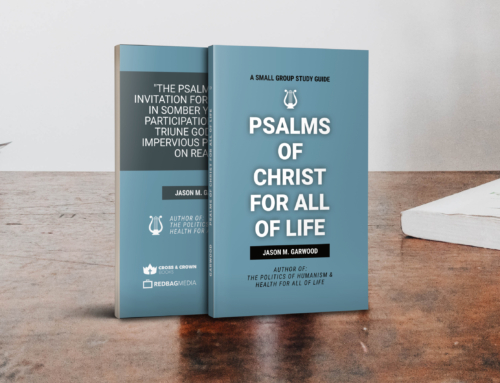You can listen to this in podcast form over at Reconstructionist Radio.
————————
I need to confess something to you right off the bat. If you’re anything like me, you oftentimes get this re-occurring feeling of wishing “you knew back then what you know now” sort of thing. It happens to me a lot—for I could have spared myself from some trouble!—but alas, we live, we grow, and we learn. At any rate, the confession I have is this: I wish I knew then how much pietism was ingrained in me. I hate the feeling of knowing something now and realizing how much help it could have been a long time ago. But out of all the things I wish I knew, this problem is the thing I think I resent the most.
The reason Pietism is something I personally take exception to the most is because of how destructive it is. It affects everything: how you live your life now, how you view the future of the world, how you process things that go in your own life as well as world events, and so on. Instead of thinking covenantally, and thus seeing the world through the lens of ethics, I was consumed with Pietism—I wanted the higher spiritual life, one devoid of worrying about earthly matters. Instead of being a spiritual man according to how the Bible describes it, I was attempting to go about my maturity the way man thinks I should go about it. I simply did not realize until a few years ago just how impotent my understanding of the Bible (and its applicability to all things), truly was.
So what is Pietism and why is it such a problem? Let me define what I mean by Pietism by starting with what I don’t mean. I don’t mean that we should not commit ourselves to pious acts. There is a distinction that needs to be made between Pietism and piety. We should read our Bibles, pray, go to a biblical church, tithe, partake of communion, and live on mission together as the church. These are pious things and we should do them. Often. By strict definition, piety is merely the outward manifestation of internal reverence and religion. Pietism, however, as a systematic philosophy ought to be contrasted with pious acts of righteousness. In other words, all Pietists value piousness, but not all people committed to piousness are Pietists.
To reiterate, the critique presented here is not towards committing ourselves to pious actions—like the Puritans, we do believe in experiential religion. The critique I’m offering is for the philosophy of Pietism that believes in the “deeper life,” the “spiritual only-ists” who think that only inward spirituality is what matters in the here and now—we can’t get wrapped up in the material.
Pietism was a reactionary movement following the Protestant Reformation. It tried to bring Christian life out of the perceived chains of a morbid, stale religious experience. Orthodoxy was believed to be “dead,” so a commitment to reinvigorate the spiritual lives of Christians was in view. This in and of itself wasn’t inherently a problem, for we should be people who have outward actions that align with what we believe to be truthful on the inside. But the movement gained traction, especially in the Moravian wing, as well as the Methodism and Holiness movements. Though Wesley’s methodism should be considered pietism-light, the problematic teaching of perfectionism and the erroneous second-blessing doctrine, coupled with the heretic Charles Finney’s full blown Pelagianism, has all contributed to the Pietism we face in our nation today.
(Martin) Luther said that vowing something that God hasn’t commanded is sinful. Luther, like the other Reformers, were committed to the Word of God and the truth found therein. The Pietists came along later believing that they could give improvement to what Christ commanded in His Word by swearing to live pious lives, making an oath to be a superior Christian. What Christ commanded was great and all, but man needed to “add” something to the recipe in order to make it even better (so it was perceived).
This, of course, is the problem with Pietism. The practice itself and the culture it breeds is designed to give people a “better experience” of Christianity, making someone feel as though he or she is part of the elite—the best of the best—the summa cum laude of Christianity. Everyone else is just an ordinary Christian. There are “Christians,” and then there are “Purpose-Driven” Christians. There are “Christians,” and then there are “Christ followers.” There are “Christians who love the confessions,” and then there are “Radical” Christians. There are regular, run of the mill Christians, and then there are those who believe in a “New Kind of Christianity.” Pietists believe that Christianity has been comprised (which has happened, and will happen to some extent—hence the need to always be reforming to the Word), and the answer is to figure out an extraordinary way to become an elite Christian—the Bible isn’t enough, we have to “feel” like we’re better than what that is.
Pietism takes many forms, but much of it is rooted in separation from the world, asceticism, man-made traditions and philosophies, and practices of mysticism. If you really want to be a radical, emergent, super-Christian, you better get a rock-star preacher to follow, for every religion has its guru’s. Inevitably, Pietism leads to legalism—the belief that works somehow gain the favor of God, be it before justification, or after. May it never be!
When we look at history, we can see that the early church desert fathers are today’s retreatists who hide behind the four-walls of their “faith community” building. Remember, they are “Christ followers,” not Christians. The rest of us are just Christians, the lesser valued group. What was thought to be the answer in history is still thought to be the answer today. If we have our personal quiet times reading Jesus Calling, putting a picture of it on Instagram, then we “know” that we’re elite.
Is this what spirituality truly is? What would your answer be, if I asked you the question, “What does it mean to be a spiritual person?” I’ve asked people this question in the past, and what amazes me is how most are conditioned to think about this question. Usually the answers are outward: Bible reading, praying, serving neighbor, and so on. The assumption is that the truly spiritual person is the one who does certain things. The guy at Starbucks who has his Bible out and is reading it between sips on his Mocha Latte is obviously more spiritual than the guy sitting there on his phone drinking some sort of fat-free nonsense. What is he on his phone doing, anyway? Taking a picture of his drink? Who knows…
I submit to you that this experiment proves the depths of Pietism that is ingrained in American Christianity. Jesus Christ is your personal Lord and Savior and if that is true, you better have your personal quiet time each day or God will dangle you over the pit of hell until you get it right. Right? When we take the Bible’s demand for holiness and detach it from God’s positional declaration of holiness on our lives, we tend to move the pendulum too far. We relegate our Christianity to simply inward, private, dare I say, “spiritual only” things. (As if that’s what it means…) Let’s look at the Word of God to find out what it means to be a spiritual person.
The Apostle Paul says in 1 Corinthians 2:14-15 — “The natural person does not accept the things of the Spirit of God, for they are folly to him, and he is not able to understand them because they are spiritually discerned. The spiritual person judges all things, but is himself to be judged by no one.” Paul says that the natural person—the unregenerate person—doesn’t accept the things of God’s Spirit (which is why James Dobson needs to recant his statement about Donald Trump being ‘tender to the things of the Spirit.’ This verse refutes that absurd notion.) The foolish person, as Paul says, just a few verses before this, is the person who rejects the cross of Christ. It’s folly to the world, yet it is the wisdom of God. The unregenerate can’t understand the things of God because they are “spiritually discerned.” That word “discerned” is the same word in the next verse translated “judge.”
The next verse there in 15 answers the question of the hour: How do we know what a spiritual person is? Paul says that, “the spiritual person judges all things.” The Greek word in Lexical form is the verb anakrinō. It carries the connotation of investigatory questioning, hearing a case, discerning the facts, examining closely the matter at hand. And what are the matters at hand? Paul says, “All things.”
Sounds somewhat funny to say that a spiritual person judges everything, doesn’t it? It flies in the face of our Pietistic culture—where we close our eyes, raise our hands and feel the Holy Spirit’s presence in our worship experiences at church. We’ve been taught NEVER to judge anyone, and yet here Paul says we should judge everyone and everything in the world. Obviously he’s not talking about the condescending “I’m better than you,” nonsense; he’s talking about discernment. Because we are covenantalists, we are ethicists. Because we are ethicists, we see things in the world as either good or bad. There is no neutrality, which means either you are with Christ, or you are an enemy of Christ. Someone is either in Adam, or in Christ. Someone has covenanted with Satan, or covenanted with Christ and His blood. All things in this world should be viewed through this ethical/judicial lens. We are evaluators—we filter everything through the authority of God’s Word, carefully passing judgment—critiquing, questioning, and examining—on everything. This is what it means to be a spiritual person. The spiritual person is a mature person, and a mature person is a covenantal person—a man who sees the world through God’s Law. The greatest problem is ethical, not emotional. Hence why Paul says that a spiritual man ‘judges,’ not ‘feels.’
True, biblical spirituality isn’t about adding to the work of Christ. It isn’t about moving up to the “next level” by doing certain things. True biblical spirituality is using the law-word of God to take dominion in the world by carefully laboring to see ourselves, our churches, our families, and the state brought under Christ’s loving rule and reign.
Let’s push this a bit further. Here are 5 errors of Pietism that I have quickly come up with—there are more, I’m sure.
1) Pietism promotes a false dichotomy between sacred and secular, which reveals a misunderstanding about the doctrine of creation. The Earth is Lord’s, and He bought it back judicially through His Son’s blood. It now belongs to His meek Church. Which means everything in the world, short of sin of course, is ours for the taking.
2) Pietism has an under-realized eschatology, which reveals a misunderstanding of the time of the Kingdom of God. Jesus made it abundantly clear that he brought the Kingdom of God in His ministry, and the subsequent ministry of the Spirit-empowered Church. Therefore, to be premillennial is to push a false understanding of the timing of the Kingdom, which in turn promotes an under-realized eschatology, one where the Kingdom is in some sort of purgatorial form right now until Christ can come and mop it up.
3) Pietism lacks a biblical view of the Lordship of Christ over all things. He’s not just King of my heart and the hearts of His people—He has been crowned Lord of all, and “all” means everyone and everything; every person, every institution—everyone everywhere owes their allegiance to King Jesus.
4) Pietism shows a disdain for the Older Testament. Since Biblical Law belongs to another dispensation, we really don’t “need” the Old Testament because it doesn’t apply to us. It certainly can’t apply to the State, Pietism teaches.
5) Pietism promotes an antinomian, semi-pelagian worldview that compromises their entire system. I realize that all of these are related to some extent, but the anti-law, man-centered “effort” that pushes the entire philosophy is foreign to the biblical gospel.
Pietism affects the church in a grand way. Inevitably, a culture of pietism leaves people in the local church wondering where the Elders stand on issues in the culture. The pastor doesn’t preach about it and the elders don’t shepherd in light of it. If a church simply stays silent on the cultural malaise of the hour, people in the local church become even more detached, or they become confused—but they are never equipped to get their hands dirty. When the pulpits run dry, the people starve. Then all they’re left with is the song, “Jesus Take the Wheel.” Pietism pushes the church on the defensive instead of the offensive. The Lamb spilt blood, therefore, the world is ours. It’s our culture, our God’s law, our worldview that must be implemented if civilization is going to thrive. And yes, you bet, it’s going to get messy.
Practically speaking, Pietism is impotent to give you any tangible value in going to work each day. If the false dichotomization of life is presupposed, a person can’t see much value in his woodworking, or plumbing. Those things simply do not connect or add to the Kingdom of God because they aren’t “spiritual”—at least, according the definition of the Pietist. Suddenly “make disciples” becomes “just evangelize” and you never really get around to teaching people the law of God, which is what Jesus told his disciples to do after baptizing them.
The issue for the church isn’t a need for more piety, though prayer should be present; the issue is definitions—defining the church in terms of what the bible teaches, not what man feels.
One of the problems with Pietism is that it misdiagnoses the real issue and tries to meet it with a false solution. One writer says, “It sees a compromised church that is apparently caught in dead orthodoxy. The real problem is not dead orthodoxy but spiritually dead sinners who give mental assent to orthodox truth but show no signs of regeneration.”
They see the supposed “dead” orthodoxy, think that the problem is doctrine, and think that if they just felt better about Jesus and themselves then this will fix it. That’s why our sermons are less about doctrine and more about feeling happy. This is why each year the best sellers are either from heretics who tell you how amazing you are, or other heretics who write stupid devotionals with about a few sentences of nonsense. Orthodoxy can’t be “dead,” for God’s Word never returns void. And spiritually unregenerate sinners who mentally ascent to doctrine aren’t saved.
Instead of leaning on the cross of Christ and the finished—did you hear that? Finished—work of Christ, instead of coming up with a cure, they create a volatile disease and call it medicine.
Finally, let me end with this. I just finished reading Imprimis, the small pamphlet put out by Hillsdale College in Michigan. The May/June 2016 issue had Justice Clarence Thomas’ speech to the graduates this year. In it, Justice Thomas made the observation from his childhood farming days that, “If you didn’t discharge your responsibilities, there could be no independence, no self-sufficiency, and no freedom.” In context, he was comparing his work on the farm with our work as citizens in America. It applies to this issue of Pietism, too. Instead of discharging our responsibilities as Kingdom citizens, we’ve kicked back and waited for the fireworks, aka Rapture, to come. Thomas’ keen observation is valid. You can’t beat something with nothing, and since everything is covenantal and nothing is neutral, either we are discharging our responsibilities as disciple-making disciples, teaching the nations to bow to Christ, or we are not. Which means, as I have demonstrated, that Pietism isn’t a valid option among any, it’s completely antithetical to the Biblical gospel. It’s high time we discharge our covenant responsibilities and leave the lolly-gagging to the world.
Thanks for reading. Soli Deo Gloria.






Wow! Amen and ALL GLORY AND HONOR TO TYE HEAVENLY FATHER FOR WHAT HE GAVE YOU TO SHARE!
*THE
This was an excellent article and one which I shall use. Thank you.
This is more relevant than ever before. Our nation is the way it is because the church has been silent and has slowly conformed to the world. I believe pastors need to be the watchmen all the wall and to sound the alarm, instead of “tickling the ears” of their congregations.
Thanks for the insights. I ran into pietism in the 90s and it struck me as being weird and not biblical. I was raised as a nominal Catholic and read my Bible on a regular basis. In all the times that I either read or listen to the audio version, I never came across this philosophy of isolation. Yet, I did run into the idea of being holy as God is holy. In ’90, I came to Christ and jumped into a Holiness Pentecostal church. It’s here that I ran into this systematic philosophy. It wasn’t limited to that church. It’s all over the place. I can still recall saying to certain Christians, “If Christians don’t get involved in politics or other aspects of culture then we will leave a wide-open door the devil.”
I wasn’t even trying to be prophetic and I’m not a prophet. It’s simply Holy Spirit inspired wisdom, God’s Word and some common sense.